On a Tuesday morning in Johannesburg, Chenai Chair is still carrying the energy of Kigali where, just a week earlier, she attended a Deep Learning Indaba summit—the continent’s biggest AI gathering. She is doing what she often does after major conferences: sitting quietly, sifting through the noise of the previous week, pulling out the threads worth keeping.
Her desk is scattered with notes. One pile is about Masakhane’s African Languages Hub, which she leads. Another is for My Data Rights, the feminist group she co-founded. The rest are everyday tasks: budgets, reports, and memos. Some people might see these as too many things to juggle. But for Chair, they all fit together. “I exist in multiplicity,” she says,
That multiplicity is what makes her day complicated: one hour she’s thinking about how to fund natural language processing for African languages, which she believes must not be left behind in the AI revolution. The next, she is thinking about how to unpack gender inequality in AI policy, the next about filing the paperwork that keeps all of this running.
A sociologist meets tech
Chair did not set out to be in tech. She was by training, a sociologist. Her first serious encounter with technology as something more than gadgets came while working on her master’s thesis at the University of Cape Town. She wanted to understand how women in Khayelitsha — one of South Africa’s largest townships — were using mobile phones. What she found was both ordinary and revolutionary. Women posted on Facebook to attract customers for their home businesses. Younger family members, more digitally fluent, managed household enterprises on behalf of their elders. And yet, cultural norms meant that even when women bought their own devices, men in their households often dictated how they were used.
“It hit me,” Chair recalls. “Technology is never just about the gadget. It’s mediated by social norms, by culture, by trust. For tech to work, you have to understand the social fabric that surrounds it.”
That sociological framing—technology as a human, social, and political phenomenon—has shaped her career ever since.
The rooms that shaped her
Chair’s early professional years started with an internship at Research ICT Africa, collecting data on mobile phone costs and mapping internet usage in Africa. There she met mentors who widened her lens — academics like Dr. Anriette Esterhuysen, a feminist and leader in computer networking who served at the Association for Progressive Communications, and colleagues from across Africa, Asia and Latin America who taught her that technology policy was also about power, equity, and justice.
Later, global feminist networks pulled her deeper into questions of gender and digital rights. Programs like the Gender and Internet Governance Exchange exposed her to women and queer activists who were carving out space in male-dominated policy rooms. “I found myself in rooms where being curious and playful was uplifted,” she says. “It allowed me to continue on the tech journey, even when people did not understand what I was doing if I was not building an app.”
For Chair, those networks were not just professional. In a field where structural racism and gendered exclusions were constant barriers, community became both shield and strategy. “I was never really alone. There was always someone I could call—sometimes from another country, sometimes from another discipline—who understood and who strategised with me on how we uplift each other.”
If there is a hidden chapter in her story, it is this: survival through community. For every conference panel where she was the only African woman in the room, there was a late-night conversation with peers from Brazil, India, or Kenya — a shared laugh about visa struggles, a whispered strategy on how to uplift each other, a vow not to let exhaustion isolate them.
The hard stops and the reset
After working for years as part of organisations from Research ICT Africa to World Wide Web Foundation, and Mozilla, Chair was navigating what she calls “the song and dance” of convincing funders to see value in African projects. She admits “It was just too much.” “Having to prove that you are an expert in your own region, negotiating structures that were not designed for you, dealing with biases so subtle they eat away at you.”
“I took nine months off,” she says. “It was a privilege, yes, but I needed that time to recalibrate and ask myself what I truly wanted to commit to.”
When she returned, it was with renewed clarity: she would continue working at the intersection of tech and society, but on her terms — centering community, uplifting overlooked voices, and making space for others to lead.
Multiplicity in leadership
Today, Chair is director at the Masakhane African Languages Hub, where she oversees investments into natural language processing for African languages. At My Data Rights, she nurtures a feminist platform that produces open-source knowledge about technology’s impact on society. And across both, she acts as a connector, introducing young researchers to opportunities, naming them in rooms where she herself is invited, declining panels so others can take her place.
Leadership, for Chair, is less about authority, but knowing when to speak, when to hold space, and when to step back. “It’s not about being the only person in the room,” she says. “It’s about making sure others are visible, that panels do not recycle the same names, making sure young African women find doors open for them.”
Her proudest moments are not tied to her own accolades, but to the success of communities she has resourced. She lights up when recalling a project in the Democratic Republic of Congo that developed tools to help women understand land rights, or when young researchers thank her for insights that shaped their work. “That’s the wow moment,” she says. “When someone tells me, your presence in the room made me feel like I could do it too.”
Balancing principle and ambition
Chair is candid about the harder parts of the journey such as structural racism. The subtle codes of global diplomacy that force Africans to constantly prove themselves. The reality that, as an African woman, some doors will open only halfway, if at all.
Her strategy is to name these barriers for what they are — structural, not personal — and then decide what is hers to change and what is simply to be documented. “You cannot carry it all,” she says. “Sometimes you just do the work because you believe in it, and you hope others will catch up.”
“It’s about being very clear on my why,” she says. “And your why changes. At first it’s just to get a job. Later it becomes about care — care for yourself, care in the work, care for others. You have to keep checking if your why still aligns with what you are doing.”
The work ahead
The next few years will be full. Masakhane’s African Languages Hub is preparing its first major investments in natural language processing, building datasets in multiple African languages and publishing playbooks for how to engage ethically with communities. My Data Rights is consolidating as a feminist knowledge platform, curating open resources on tech and society, and grooming new leaders to take the baton.
Chair insists that much of this will happen in the background, by design. She sees herself as a connector, not a spotlight seeker. It’s about how we leverage resources, credibility and trust in order to ensure that other people are being uplifted as well,” she says.
Mark your calendars! Moonshot by TechCabal is back in Lagos on October 15–16! Join Africa’s top founders, creatives & tech leaders for 2 days of keynotes, mixers & future-forward ideas. Early bird tickets now 20% off—don’t snooze! moonshot.techcabal.com





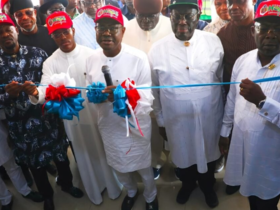



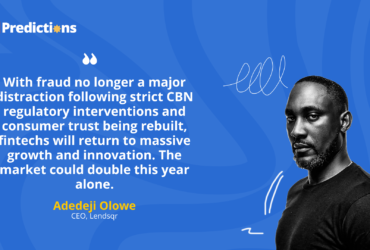
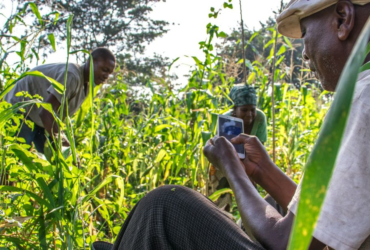
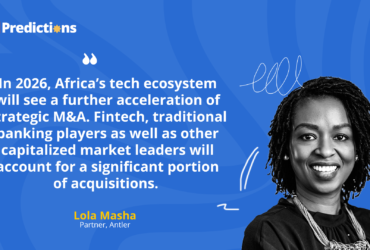
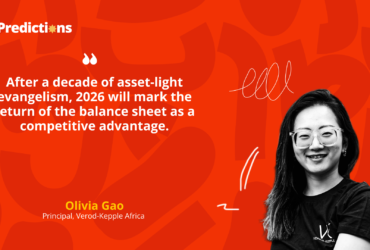
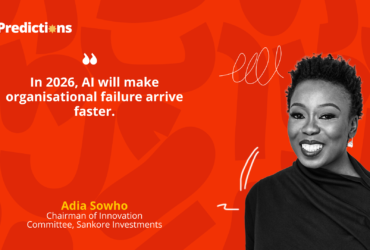

Leave a Reply